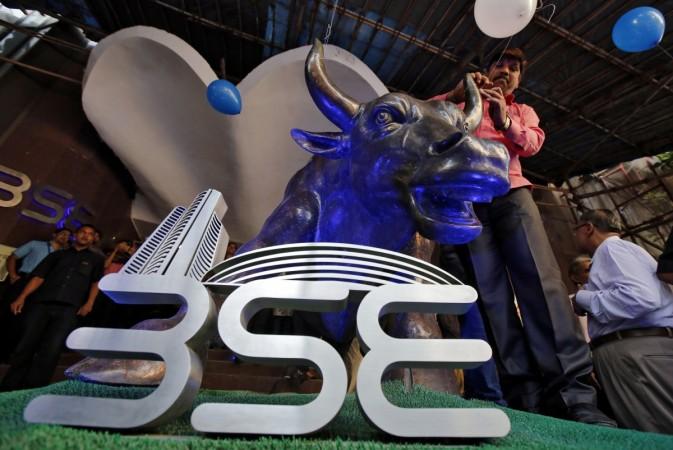
The impact of Goods and Services Tax (GST), coupled with global cues, are expected to determine the trajectory of key domestic stock exchanges in the upcoming week. According to market observers, key macro-economic data points released after market hours on last Friday, like the eight core industries (ECI) figures, external debt and fiscal deficit data, will heavily influence the domestic equity markets.
"Markets this week will focus completely on the GST rollout and the impact of the same on the economic activity in the country," Devendra Nevgi, chief executive of Zyfin Advisors, told IANS. "The traditional GST winners and losers will be in limelight. Global cues, especially from the movements in IT stocks in US, will impact local prices in the sector."
The country's biggest indirect tax reform — GST — was launched on July 1, Saturday.
"Investor's sentiments and expectation may not be met (by GST) in the short term. But it will be positive for listed entities over the medium to long term," Vinod Nair, head of research, Geojit Financial Services, said.
"On a worst case scenario, we can expect a correction in the range of 4-8 per cent in broad indices."
Besides GST rollout, positive macro-economic data points like a higher ECI figure for May 2017 will be other major theme for the stock markets.
The output of India's eight major industries during May grew by 3.6 per cent from a rise of 2.8 per cent reported in April 2017. However, country's fiscal deficit up to May during the current fiscal touched Rs 3.73 lakh crore or 68.3 per cent of the Budget estimates for 2017-18.
Analysts pointed out that monthly automobile sales figures and the Purchasing Managers' Index (PMI)'s manufacturing and services data will be other major sentiment drivers.
"Coming week would see markets react to monthly auto sales numbers. Among the macro-economic data, June Nikkei Markit Manufacturing PMI and Nikkei Service PMI are also scheduled to be released," Vijay Singhania, founder-director, Trade Smart Online, told IANS.
In addition, global cues especially international central banks' action, crude oil price movement and currency activity will also act as key factors that will dictate the direction in the coming week.
"More than the domestic factors, it is the global risk that haunts us more, with a change in US Fed policy outlook," Nair said.
"Further, FOMC (US Federal Open Market Committee) plans to cut its liquidity by selling bonds which will be detrimental for equity. This will be a concern for emerging market like India over the medium-term."
The US Federal Reserve's moves can potentially drive away Foreign Portfolio Investors (FPIs) from emerging markets such as India.
Investment-wise, figures from the National Securities Depository (NSDL) revealed that foreign portfolio investors (FPIs) invested in a total of equities worth Rs 334.47 crore, or $51.9 million, during June 27-30.
Currency-wise, the Indian rupee weakened by five paise to 64.58 as against the US dollar from it's last week's close at 64.53 to a greenback.
"In global financial markets, volatility has started to creep back, as markets have begun reacting to the barrage of hawkish comments from major central banks. Volatility moves like a whip, it first increases or decreases in the interest rate market and then flows into currencies, commodities and equities, in the same direction," said Anindya Banerjee, AVP, currency derivatives at Kotak Securities.
"Over the next week, we expect USD/INR to remain ranged between 64.30/40 and 64.90 levels on spot."
On technical-levels, the NSE Nifty is expected to resume its uptrend after crossing the immediate resistance level of 9,616 points.
"Technically, while the markets have corrected this week, the Nifty remains in an intermediate uptrend," Deepak Jasani, head - Retail Research, HDFC Securities, told IANS.
"The uptrend could resume once again if the immediate resistances of 9,616 are taken out. Crucial supports to watch early next week for more weakness are at 9448-9422."
Last week, key equity indices ended on a negative note, as investors were spooked ahead of the launch of the GST.
Consequently, the 30-scrip Sensitive Index (Sensex) of the BSE closed at 30,921.61 points — down 216.60 points or 0.70 per cent from its previous week's close.
Similarly, the NSE Nifty closed lower by 54.05 points or 0.56 per cent to close the week's trade at 9,520.90 points.

















